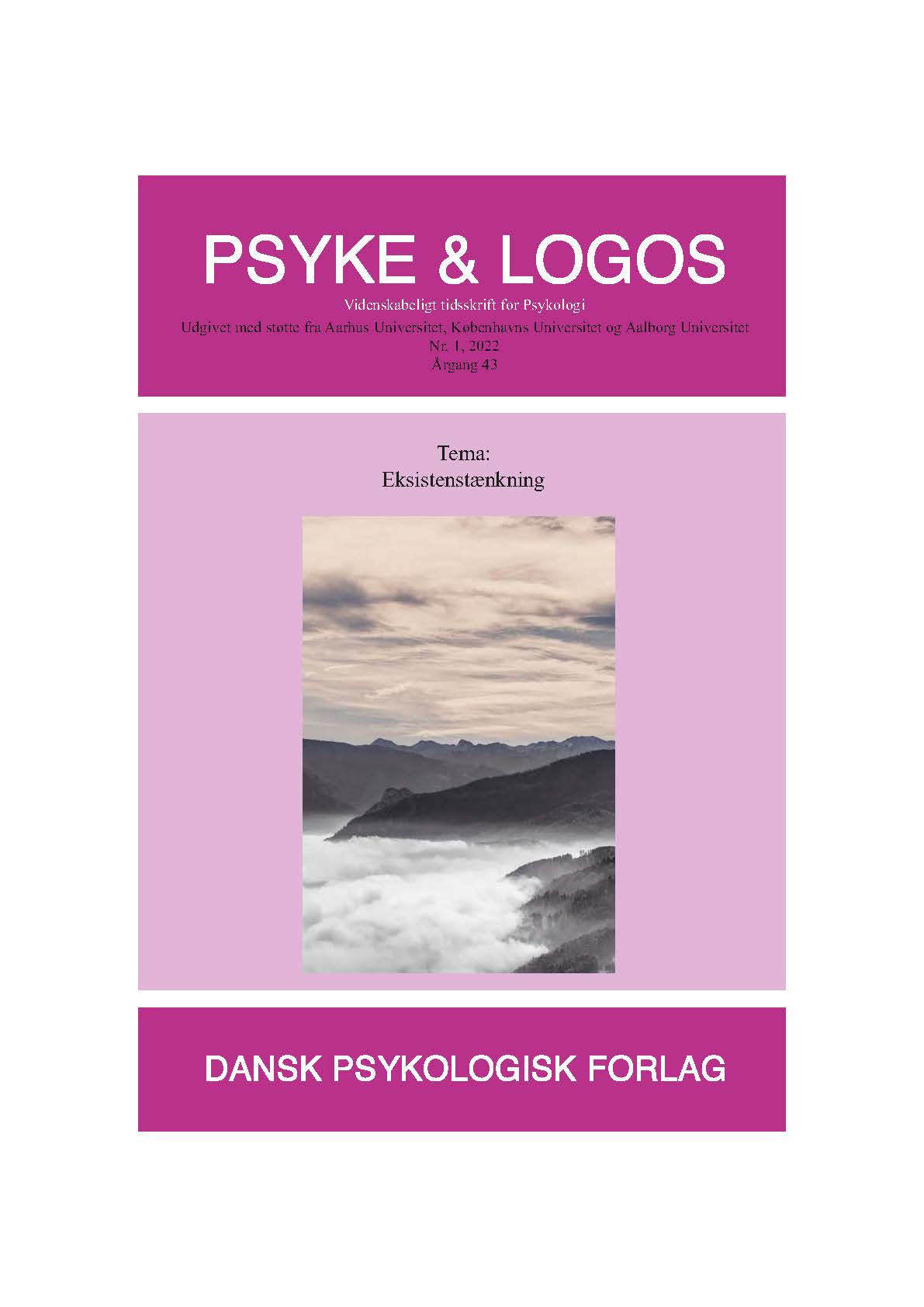Existence phenomenology
DOI:
https://doi.org/10.7146/pl.v43i1.133880Keywords:
existence, phenomenology, pure existence, emotion, selfAbstract
In order to become confident with human living conditions, the aim of phenomenology
is to describe the structure of consciousness and what appears
within. In this article, human existence is considered within the former aim
with a point of departure in Søren Kierkegaard and William James’ conception
of “Existence” and “pure experience” respectively. Existence is defined
as a process in which the individual’s life experience is reflected in the experience
of everyday life and where current spontaneous consciousness
finds resonance in the individual’s life experience. The argument is that the
emotional life shapes human existence in a living relationship between the
present and the individual’s emotional world of experience. Existence is
constituted as a feeling of being oneself, similar to what James calls “I” or
“pure ego” and Kierkegaard calls “Spirit” or “Self”. In special circumstances,
this everyday existence transcends into an intense emotional experience,
whereby a fleeting emotional experience is constituted in a sensate form
with increased personal integrity.
Downloads
Published
How to Cite
Issue
Section
License
Ophavsret er tidsskriftets og forfatternes. Det er gældende praksis, at artikler publiceret i Psyke & Logos, som efterfølgende oversættes til andet sprog, af forfatteren frit kan publiceres i internationale tidsskrifter, dog således at det ved reference fremgår, at den oversatte artikel har et forlæg i en dansksproget version i Psyke & Logos. Artikler kan frit deles og linkes til på forsknings- og undervisningsnetværk (så som Blackboard). Link foretrækkes, fordi det giver oplysning om brug af tidsskriftets artikler.




